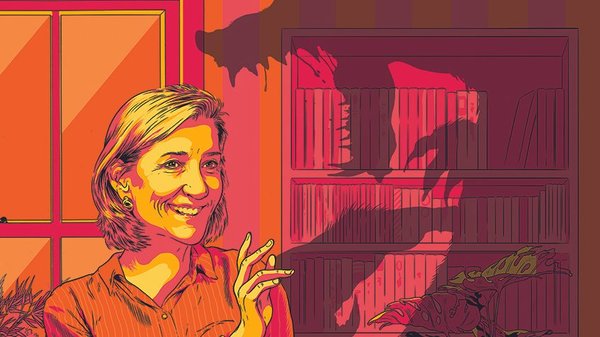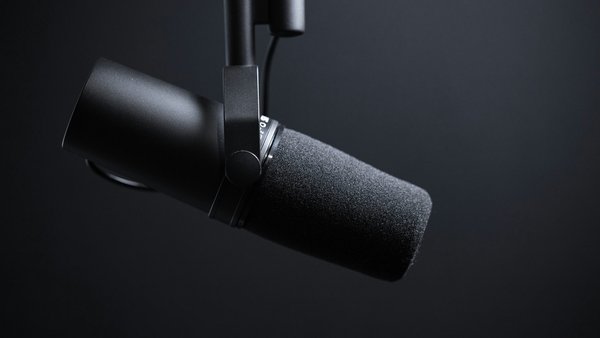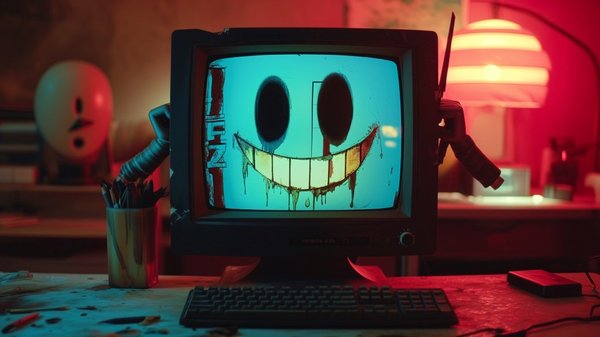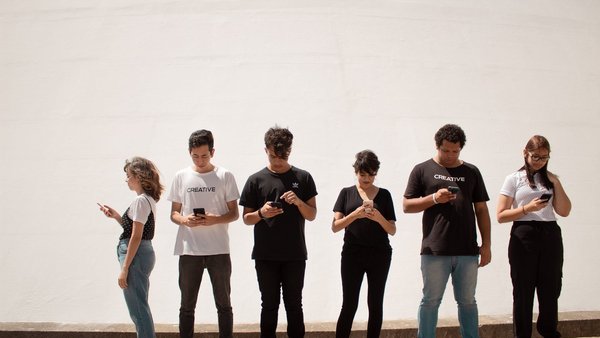Mobile president Ari Weiss on the hacks that ruled Cannes and why advertising is stuck on one emotion /
Contagious spoke to Ari Weiss, president of the 2019 Cannes Lions Mobile jury, to get an insight into this year's winners
Phoebe O’Connell
/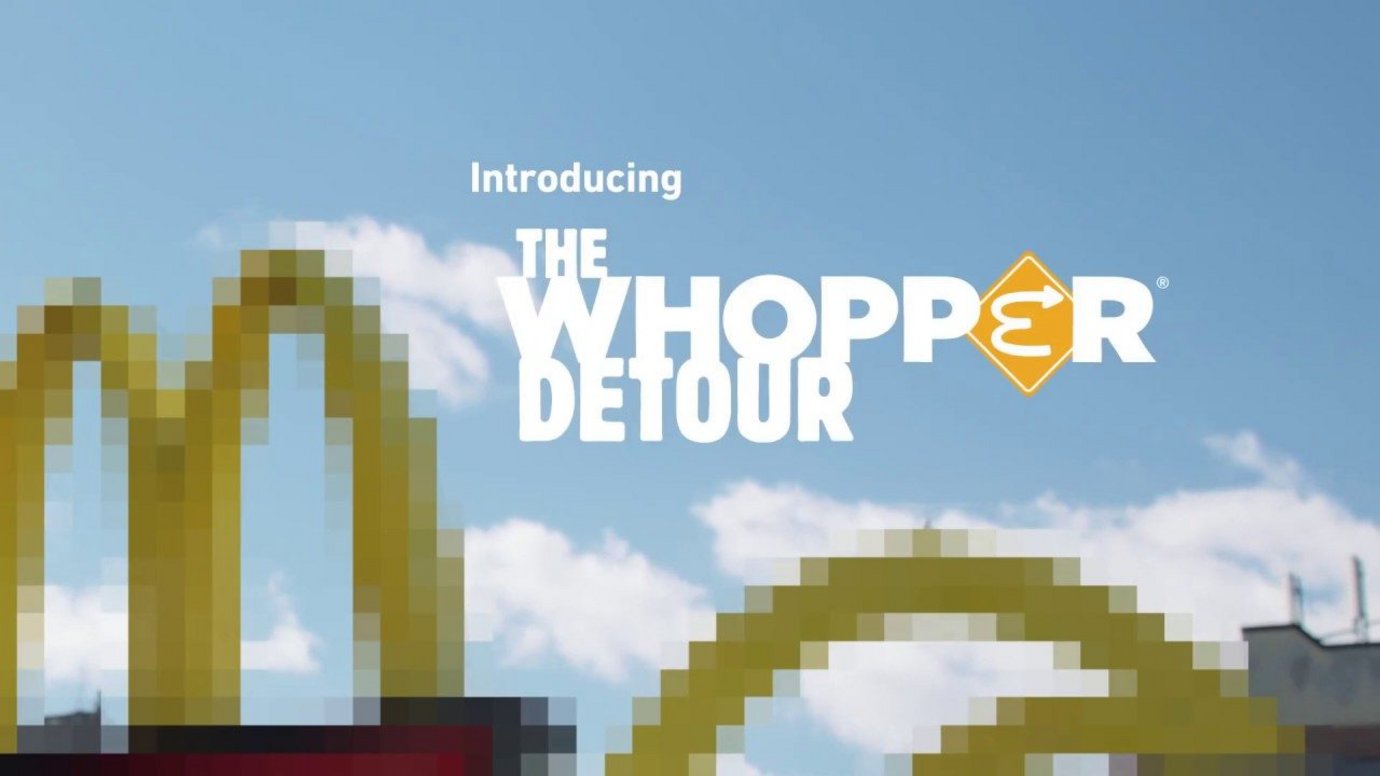
Cannes Lions 2019 was a Burger King-fest, with The Whopper Detour securing Grands Prix in the Titanium, Mobile and Direct categories, as well as a handful of Gold Lions.
The stunt, which offered 1-cent Whoppers to app customers who ordered from the vicinity of rival McDonald's restaurants, was created by FCB New York and generated 3.3 billion impressions (with an earned media value of $37m). According to the agency, during the nine-day promotion, sales through the app increased seven-fold.
Ari Weiss, chief creative officer of DDB Worldwide, was this year’s Mobile jury president, and served on the same jury in 2018. Contagious spoke to Weiss for an insight into the judging process and his perspective on the festival.
Having experienced the Mobile jury two years running, have you noticed any difference this year? Was there anything you would have liked to see more of?
Weiss: We definitely saw a decline in entries for VR, which I thought was interesting. GIFs also didn’t feature very prominently – in years prior they were quite significant. There weren’t as many tweets that set the world on fire. There were some great things like Bagelgate – Apple had released a bagel emoji without any cream cheese on it, and Philadelphia had the insight to troll them a touch and say a bagel isn’t a bagel without cream cheese on it. The whole emoji community took arms and it was all over the press, until Apple changed the emoji to feature cream cheese. It was a beautifully simple idea and we asked ourselves, is it mobile? Does it have geofencing, utility, an app, a mobile site? Does it have AR, VR? Is it a game? Those are all wonderful and equally valid facets of mobile, but I’m personally very fascinated by our ability to affect culture as an industry, and we’ve seen so much of it start on Twitter. I think it will be interesting to see how that evolves over the years.
You said the GP winner ‘couldn’t have been more mobile’ – did you have any criteria beyond this that you set out at the start with the jury?
I wanted to make sure that we were looking idea-first, versus platform-first; in other juries I’ve been in, sometimes the tech can take the lead. While I think there’s a place for that – [Huawei’s] See Sound initiative used incredibly innovative tech and had a beautiful insight, it won in the Connected Devices category, which it was perfect for – we need to be doing big ideas that can affect culture. Mobile is such a pervasive medium – we all have phones in our pockets, the ability to communicate to the broad public is at the tip of your fingers.
At its core, Mobile is the first entry point into almost any brand communication now. A tweet, a film, a game, an app, a utility – branded entertainment – this is how we’re consuming now. As a person who loves film, I feel a bit disappointed that we’re now watching film on [a phone] screen. But it is the consumption behaviour. It’s just our reality now.
Burger King faced strong competition. What did The Whopper Detour have that the other entries didn’t?
This is a creative festival, not a technology festival, so for me it’s not as much about innovative new technology, as it is about using the technology in really creative ways. New technology can certainly be used in very creative ways, as can old technology. There was a beautiful entry from Huawei, who were taking their old phones and packaging them up in this environment-proof packaging and seeding them across the forest to monitor the sounds of the forest, to get a ton of data as to how it was being affected in different areas. That piece was loved by the jury because it was making old technology new again. Creativity isn’t defined by how prescient it is, but by how creative it is, and I think technology can serve that at a very simple level.

Did you see any examples of entries that, to their detriment, put tech before an idea?
There was an idea that was essentially an eCommerce idea which made its way very high into the consideration set, and at the end of the day, it lost out to the GP because it was more of a tech innovation and a comms architecture innovation than it was a creative idea. I think that was at the crux of our final decision: does technology lead or does idea lead? At the end of the day we chose for idea to lead.
We were split. It was one of those things that just comes down to where your philosophies lie, if you believe it’s technology first then that one piece that puts tech first, and if you believe it’s idea first, The Whopper Detour was absolutely the best idea-first.
I think we sent a quite significant signal, that it’s all about the creative idea using the medium to best serve that creative idea to drive a significant business effect for that client. I would tell next year’s entries to aim for an undeniably brilliant creative idea that has mobile at its core.
This year, many brands have been rewarded for putting inclusivity or equality at the heart of their campaigns. In your category, many of the entries were about humour, pushing boundaries, and being tongue-in-cheek. Do you think mobile is immune to those other trends?
I think some of it might have been my personal bias. I think causal advertising is absolutely amazing; our job is to create a genuine emotional connection that drives our brands forward. I think that social causes are an incredibly effective way to do that, as long as they are authentic, but I think we’ve probably seen an over-correction. My fear is that often this is done inauthentically, and can actually be more damaging for the brand than beneficial.
I wanted to make sure that we didn’t over-index on causal work and that we weren’t judging the cause over the idea. There were a couple of cases that were absolutely brilliant and they did quite well because they had a perfectly genuine cause. We stopped and reflected and said: 'Is this actually a brilliant creative idea, or are we voting on it because we love the cause and what it stands for?' I believe that our responsibility as a jury was to vote on it because it was the absolute best creative idea, not for what it was serving.
So it has to be relevant and based on a sincere insight.
Exactly. As an industry, we shouldn’t forget that we’re here to entertain and earn our audience’s love, and that love can be crying, laughing, anger – every emotion out there. I think we’ve become particularly stuck on one emotion. This industry always has trends. Comedy was a trend when I first came in, then we got into some much more authentic and emotional causes. Again, I’m all for social causes [...] but I think our industry can have a little bit of a broader spectrum than just focusing on causal work.
Have you seen any other trends that you’re interested in?
This isn’t the first year that there have been a couple of runaway winners, with Grands Prix in multiple categories. I wouldn’t be surprised to see this happen more and more, because the great big ideas are bigger than the medium that hosts them, and the really, really big ideas are hosted on many media. It will be interesting to see how the festival adjusts and reacts as we move forward, to the point of not being able to predict the future. It’s just where we’re headed – it will be interesting to see how we categorise this type of thinking.
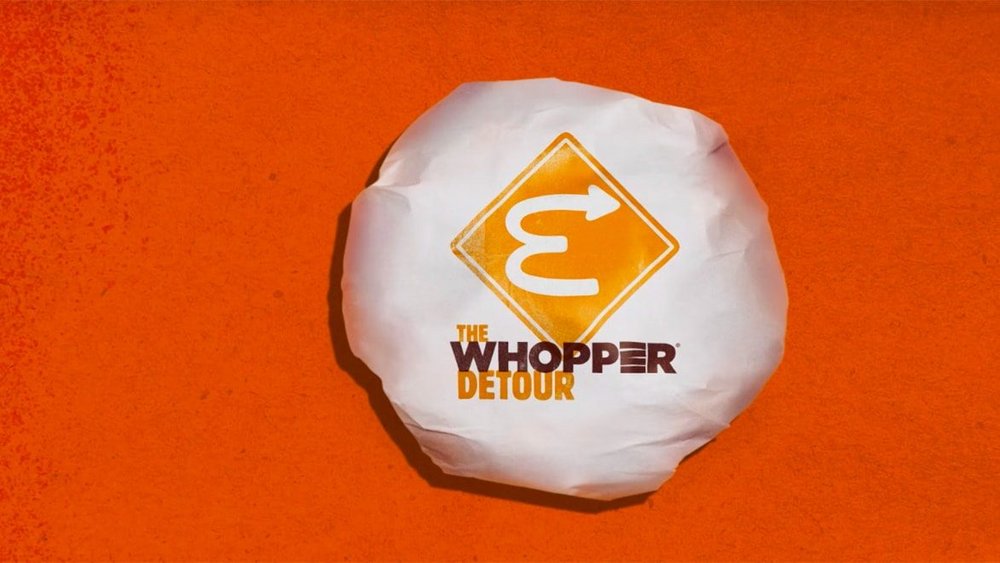
Are you quite optimistic about the future of the industry?
Maybe it’s out of self-preservation but yes, I’m very optimistic. I think there is a larger forum for creativity now than ever before. I’m not sure if I’d gone to my Mars client four years ago and pitched them a Skittles Broadway Musical that they would have done it – they were running Superbowl commercials back then [...] because they were the most effective [format], and now we get the same efficacy with a much smaller spend because brands are seeing the value that creativity can provide in terms of reach and effectiveness.
So would you say that brands are more open to taking risks today, having seen the potential rewards?
Yes, partially because they see the reward in it and partially because they have to – just doing it the same old way that’s been done for the last ten years is losing its efficacy.
I think creativity is growing in value. As it grows in value the responsibility that falls on the shoulders of creatives increases – it can’t be creativity for vanity’s sake or awards shows’ sake, it has to be creativity for cultural relevance’s sake. So I think we’re seeing that creative leaders, directors and new creatives coming into the industry have to develop a bit more responsibility than previously was required, because it really is now about creativity driving business results.
What did you see brands doing really well this year?
I saw the Ikea [Thisables] campaign that won the Health & Wellness Grand Prix – simple hacks that change the brand’s ability to interact with a broader audience is an interesting trend that I’ve just loved to see. The Ikea piece was incredibly moving and the fact that it was just a simple, 3D riser that you could print from any 3D printer was brilliant and jealousy-inducing. I think the hacks are a very interesting trend. We had one in our category, in the charity section, that many people wanted to be the Grand Prix, called Herstory [an app that allows the user to hover over a male historical figure in a textbook and pulls up the profile of a relevant and unrepresented female figure from that period] and I look at that as a hack, ultimately. It takes a traditional way of seeing the world, a very traditional medium, that is distributed in classrooms across the country, and it changes the perspective from which you look at it – literally, but also philosophically.
I think that’s a really interesting trend – Ikea’s 3D printing is a hack, Herstory is a hack, and even, I would argue Kapernick [Nike Dream Crazy] is a hack. Through Twitter they started a cultural conversation by taking their relationship with the NFL and flipping it on its head. These are jujitsu moves. The Whopper Detour – you have to go to McDonald’s to unlock it. There are all these perspective shifts that change the way you look at something quite traditional. I think that might be the biggest trend this year.
It’s interesting that those other examples you’ve given there are less about scale and anchored on a mechanism or idea.
Very small scale. Herstory was, more than anything, a proof of concept, it shows what’s possible and it was beautifully executed and very simply done, but I agree I don’t think it has the scale, I don’t know that I would’ve pushed for it for GP, but it’s a beautiful piece that simply shows what's possible in this category. I don’t think scale is always the requirement, it’s just one of the things I hold very dearly.
If you'd like us to bring the best work, key trends and brightest ideas from Cannes Lions to your office for your team or as part of a client event, book our Cannes Deconstructed briefing. Based on behind-the-scenes access to jury presidents, press conferences and the teams behind the Grands Prix-winning work, Cannes Deconstructed delivers a week’s worth of Cannes in one, insight-packed hour. To find out more or book a Contagious Cannes Deconstructed briefing, click here.
Want more of the same? /
We don’t just write about best-in-class campaigns, interviews and trends. Our Members also receive access to briefings, online training, webinars, live events and much more.





